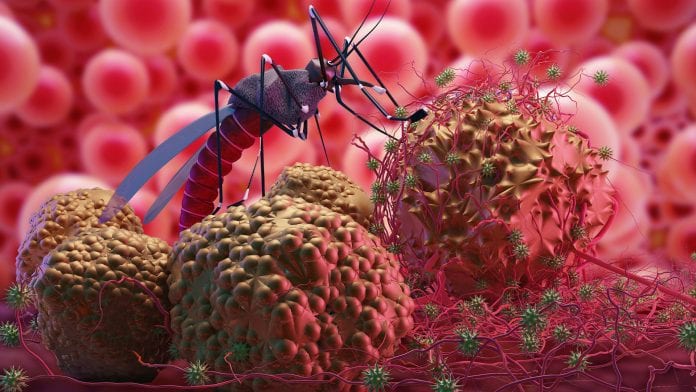Muhammad,15, noticed a swelling in his stomach after he was wrongly diagnosed with appendix. After surgery, the symptoms still continued. He then went to the hospital and was diagnosed with typhoid intestinal perforations.
Dr Ikram Muhammad Lawal, a medical officer at Graceland Hospital, GRA Barnawa, Kaduna State, described typhoid fever as a severe illness characterised by fever, abdominal pain and diarrhoea .
He said about 21 million people have typhoid fever around the world, adding that over the years, it has become increasingly resistant to antibiotics.
The doctor said typhoid fever is usually caused by a bacteria called salmonella typhi, and that it happens due to consumption of food and water contaminated by the faeces of a sick patient.
- 2 Chinese, 30 others arrested over illegal mining in Oyo
- Scaling up nutrition: ANRiN, AYGF, others reach over 1.5m beneficiaries in Niger
He said typhoid fever is most prevalent in impoverished areas that are overcrowded with poor access to sanitation and clean water. He further said that typhoid fever is more common in children and young adults than in older and young children.
Dr Ikram added that typhoid fever symptoms vary between 5 and 21 days and that the person with typhoid fever would develop a high fever rising steadily during the first week with headache, chills, abdominal pain, abdominal distention, cough, joint pain and muscle pain.
He said malaria and typhoid share the same symptoms so most times people often mistake malaria for typhoid fever.
Diagnosis
The medical expert said typhoid fever could be diagnosed with clinical presentations and laboratory tests such as widal, “which is not very useful because it can become positive after several days of the disease which makes it unreliable.”
He added that tests are carried out on stool and urine which is usually positive during the incubation period.
“We also carry out a polymerase chain reaction (PCR) test which gives results within a few hours and is more specific and sensitive to blood culture, but diagnosis is mainly based on clinical symptoms and the history of possible exposure,” he said.
Complication
Dr Ikram said if typhoid fever is left untreated, it may progress to intestinal perforation which usually occurs in the distal ileum with marked abdominal pain and tenderness, tleadshat to leaking of gastric juice within the abdomen.
He said intestinal perforation occurs during the early stage of typhoid fever, through contaminated food or water whereby the bacteria travels into your intestine and then into the blood which leads to perforation.
He added that bleeding is the second most common complication.
“If untreated, this happens as a result of perforation that will later lead to loss of blood and sepsis which leads to shock and causes death,” he said.
Prevention
Dr Ikram said typhoid fever can be prevented by proper hand-washing, improved personal hygiene, and sanitary habits, adding that they are very important preventive measures.
He added that provision of clean water and adequate sewage disposal were also important
“Immunisation is also done as a preventive measure for typhoid fever,” he added.
Treatment
Dr ikram said the best way to treat typhoid fever is to see your healthcare provider first. However, he added that since the disease is caused by bacteria, it can be treated with different choices of antibiotics which should be done according to the culture report and antibiotic sensitivity.

 Join Daily Trust WhatsApp Community For Quick Access To News and Happenings Around You.
Join Daily Trust WhatsApp Community For Quick Access To News and Happenings Around You.